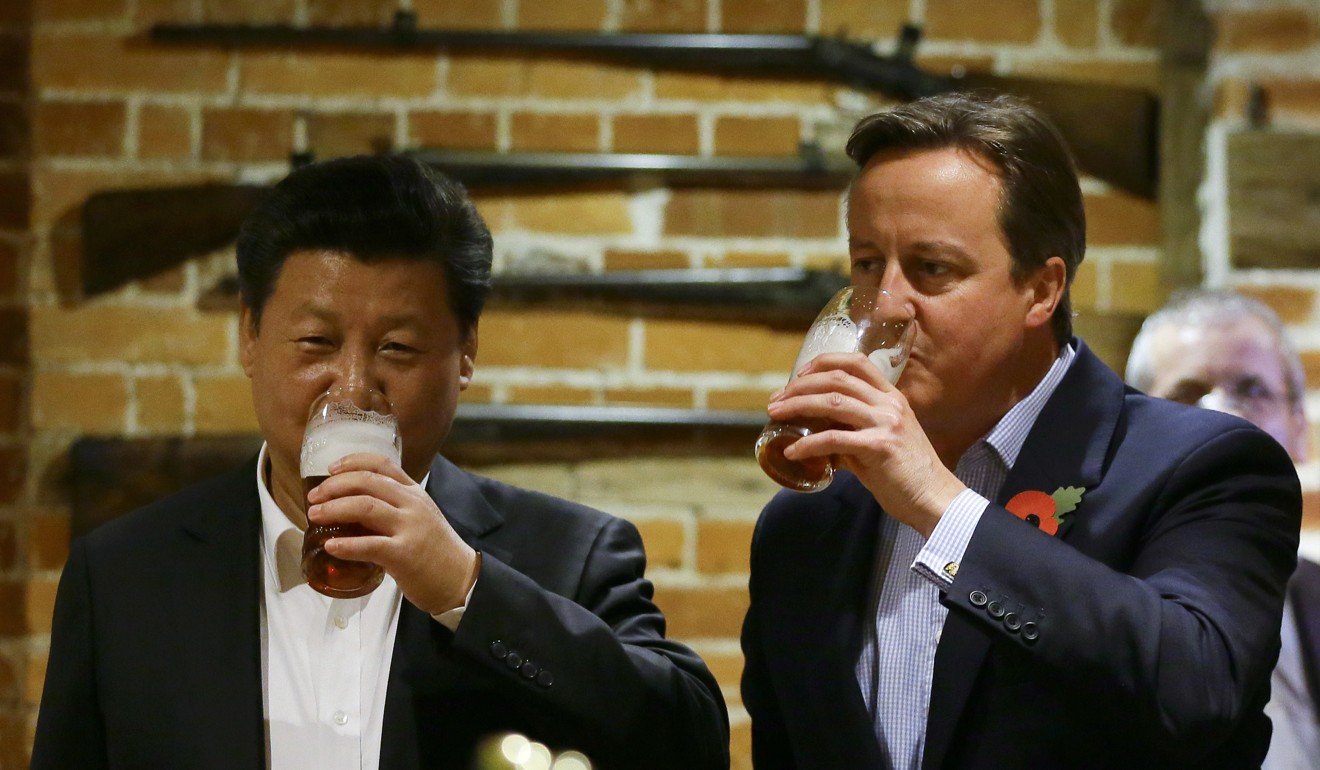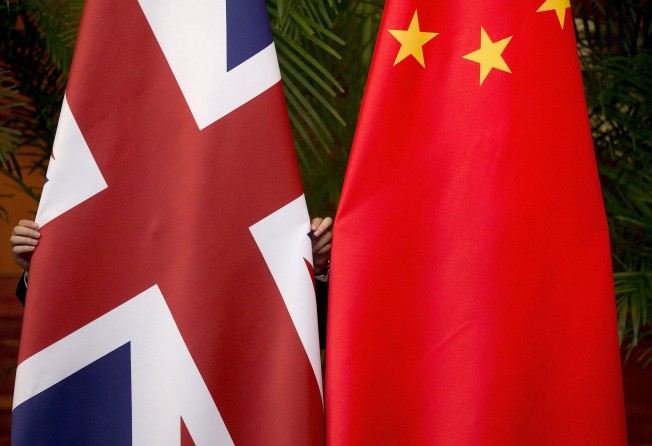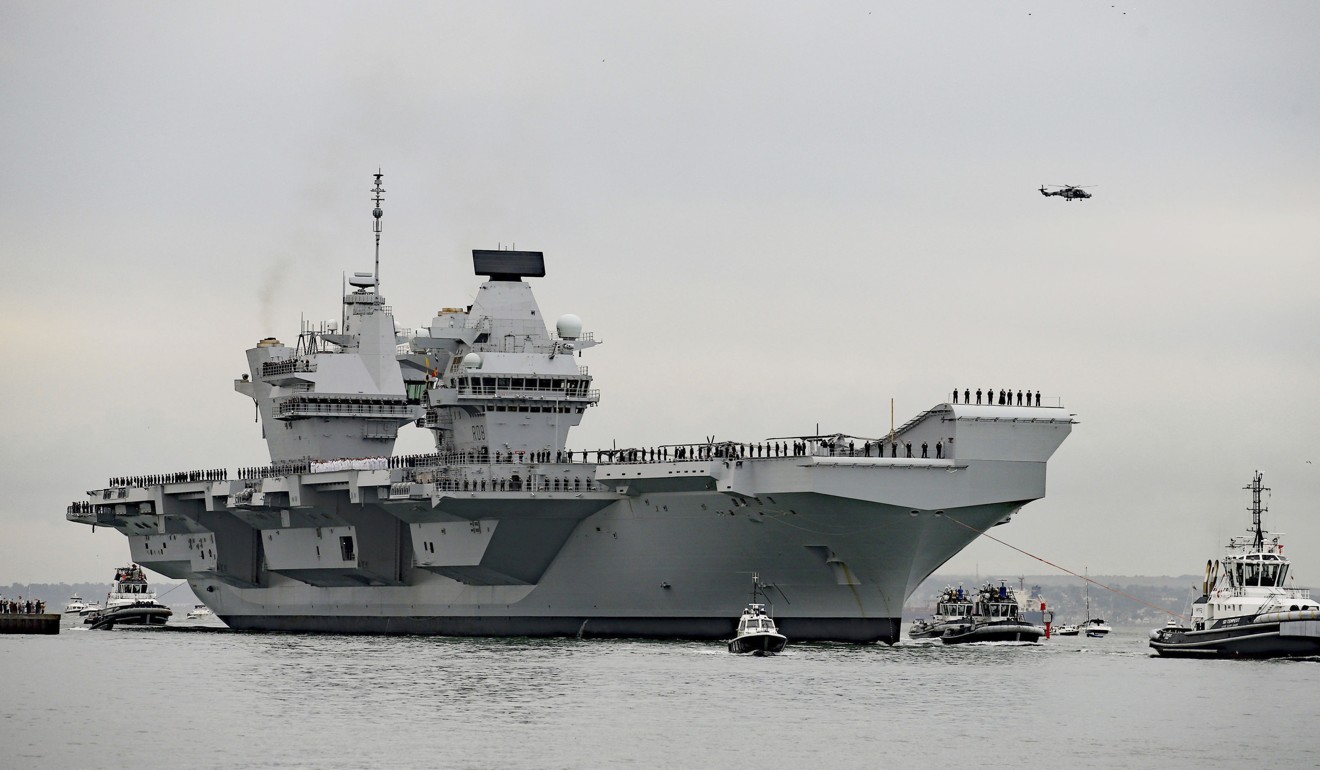
Death of the ‘Golden Era’? UK report demands rethink of China policy as Beijing gets tough
- Report comes as the UK government is in the throes of an unprecedented political crisis over Brexit
- China seen as one of UK’s key trading partners - if and when Britain finally leaves the European Union

Britain should reassess its “Golden Era” policy with China as it risks putting economic interests above security concerns and instead devise a new strategy “that reflects changes in Beijing’s strategic direction”, according to a new UK parliamentary inquiry report.
The report by the influential Foreign Affairs Select Committee also warns against signing a memorandum of understanding with China over the Belt and Road Initiative and calls for the UK government to clarify its naval strategy in the South China Sea.
“The UK’s approach risks prioritising economic considerations over other interests, values and national security,” the report, released Thursday, said.
“If the government had not already committed in rhetorical terms to a ‘Golden Era’ in UK-Chinese relations, we question whether it would be appropriate to do so now.”
It called for the government to develop a single, detailed, public document defining the UK’s China strategy to be published by the end of 2020.
The announcement of a “Golden Era” in Anglo-Chinese relations came with President Xi Jinping’s UK visit in 2015, the terminology the brainchild of the former Prime Minister David Cameron.

Since then, China has been investing heavily in the UK, especially in the oil, telecoms, nuclear and transport sectors.
Lawmaker Tom Tugendhat, the Conservative chair of the cross-party inquiry, said the current framework of UK policy towards China “reflects an unwillingness to face the reality of China’s strategic direction”.
He said the UK should “recognise there are hard limits to what cooperation can achieve; that the values and interests of the Chinese Communist Party, and therefore the Chinese state, are often very different from those of the United Kingdom,” he said.
The publication of the select committee inquiry comes as the UK government is in the throes of an unprecedented political crisis over Brexit with China seen as one of its key trading partners if and when Britain finally leaves the European Union.
The report cited concerns about Huawei’s involvement in the UK’s 5G infrastructure, “attempted interference in the UK’s domestic affairs” and the treatment of the Uygur-Muslim population in Xinjiang that Tugendhat said was “stirring up resentment that could affect other countries including us, here in the UK”.
It also questioned the clarity of the UK’s naval strategy in the South China Sea.
Gavin Williams, the UK Defence Secretary raised Beijing’s hackles when he announced plans to send the UK’s only aircraft carrier, HMS Queen Elizabeth, to patrol the South China Sea.

“We are concerned that the Government has not yet constructed a clear strategic narrative for its participation in specific naval operations to uphold freedom of navigation in the South China Sea,” the report said.
“The strict, and clearly expressed, purpose of UK operations in the South China Sea should be to uphold international law, rules and norms, in collaboration with allies and like-minded partners. We believe that to use freedom of navigation purely to demonstrate military power, or as a sign of Britain’s global presence, would be a mistake. By leaving the Government open to cynical accusations of belligerence and militarisation of the region, it could undermine the legal principles that the UK is trying to protect. This is not the right instrument to send broader strategic messages to China.”
The select committee report called on the government to give the UK Foreign Office an essential role in deciding belt and road initiatives with China, as it was a political initiative that could undermine Western strategy in issues like human rights as well as cause developing countries to become indebted to China.
“We encourage the Government to employ a strictly case-by-case approach to assessing Belt and Road Initiative projects, and to refrain from expressing an overarching view on the merits of the initiative as a whole.”
This includes ceding to Chinese requests to sign a memorandum of understanding, like Italy did last month.
Finally the inquiry report said that while London did not believe independence was a realistic option for Hong Kong, it said it was “deeply concerned” that Hong Kong’s autonomy was at risk, especially in the area of the rule of law.
“If the Hong Kong authorities’ approach to the independence movement were to be replicated more broadly, this would be a very grave threat to the autonomy promised to Hong Kong under the Joint Declaration,” the report said.